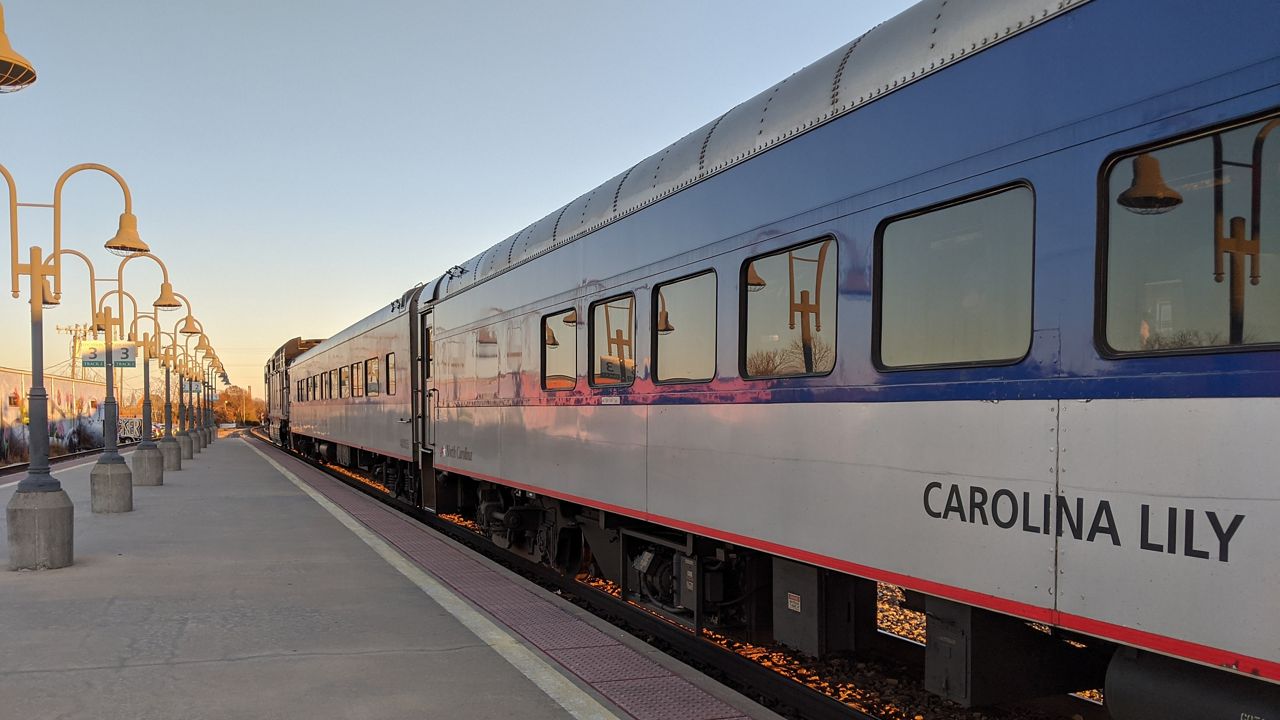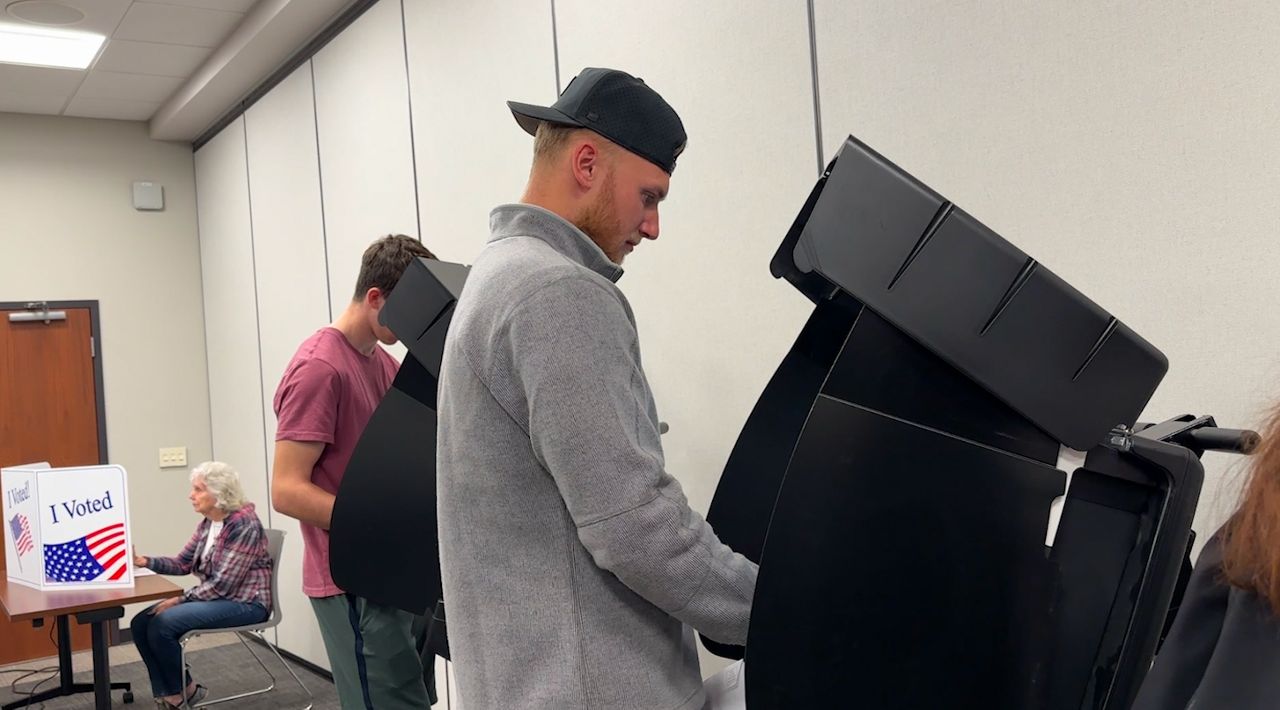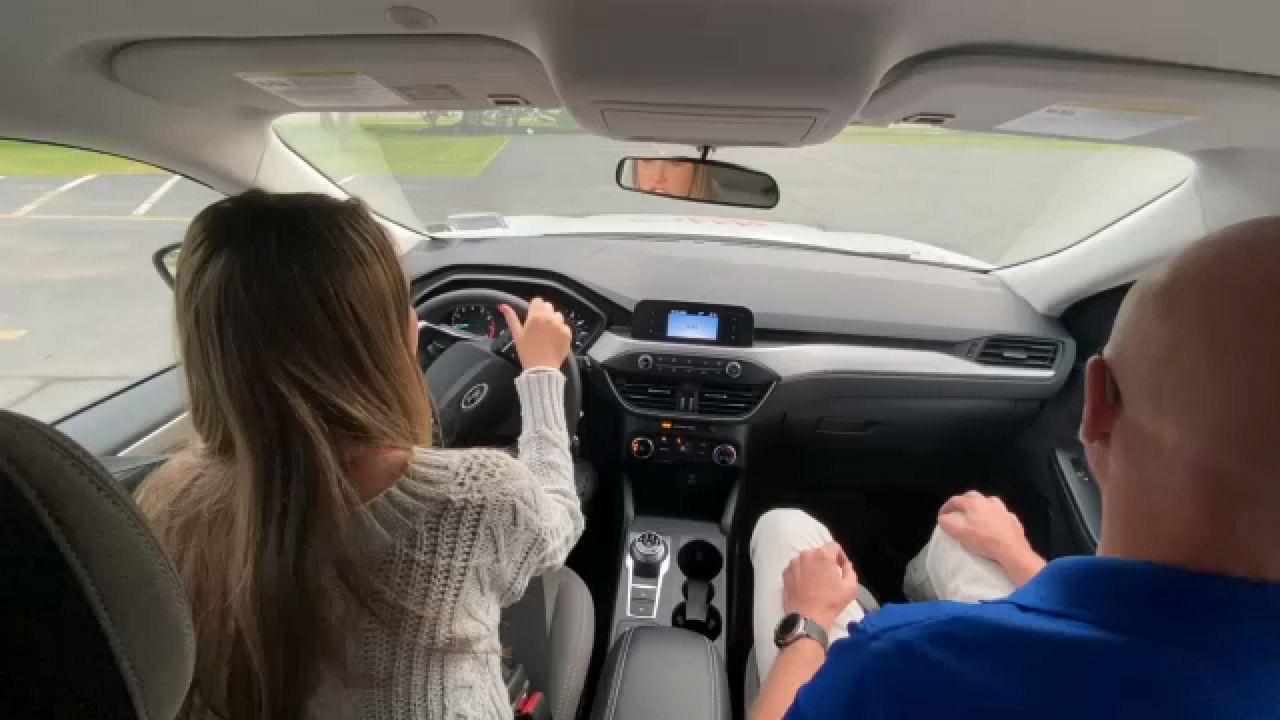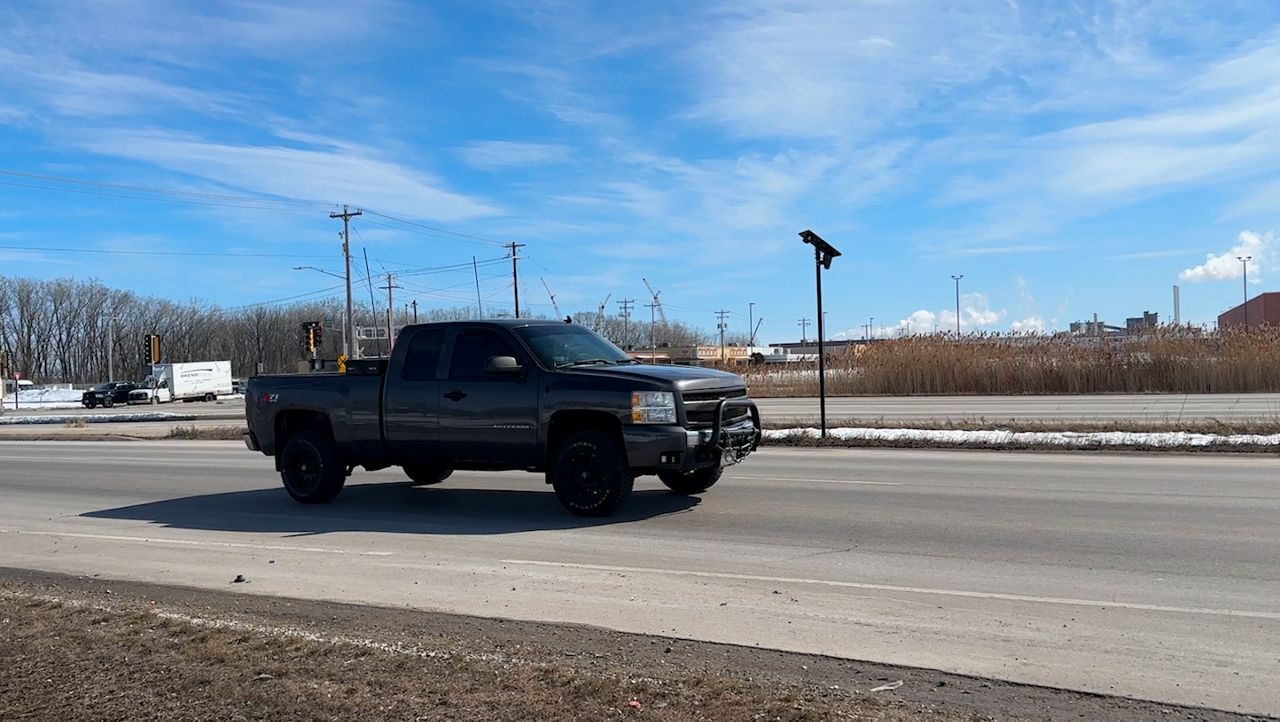The federal Bipartisan Infrastructure Law set aside $20 billion for transit projects around the country. North Carolina is set to get more than $176 million of that in this year’s federal budget.
The funding includes things like almost $1.9 million for bus and bus facility upgrades in Charlotte, half a million to help with transit for seniors and people with disabilities in Winston-Salem, and more than $2.3 million to help fund bus service in Wilmington.
“This $176 million allocation will improve transit operations in North Carolina cities and surrounding areas so we continue to provide reliable transportation throughout the state,” Republican Sen. Thom Tillis said in a statement Wednesday.
“I was proud to work with my colleagues to craft and pass the bipartisan infrastructure package that is already delivering millions in federal resources for targeted infrastructure needs in North Carolina,” he said.
The United States Department of Transportation released the new information Wednesday, detailing how all the money will be spent and where.
"Every day, transit connects millions of Americans to jobs, schools, groceries, hospitals, resources, and countless other opportunities – all while helping to reduce pollution, congestion, and traffic," U.S. Transportation Secretary Pete Buttigieg said in a news release.
"Now, thanks to the President’s Bipartisan Infrastructure Law, we are making the largest investment in public transit in our nation's history," he said.
Congress passed the federal appropriations in March, clearing the way to send the money out. States and local governments will still have to budget for the new funding.
Here’s a breakdown of where the money is going and how it will be spent:
Funding by urban areas
- Asheville - $4,921,134
- Charlotte - $34,075,314
- Concord - $3,240,367
- Durham - $11,617,044
- Fayetteville - $5,298,359
- Greensboro - $7,848,346
- Hickory - $2,798,441
- Raleigh - $19,327,928
- Wilmington - $3,783,606
- Winston-Salem - $7,791,295
Transit operating assistance
This money can be used for upgrades to buses, rail lines and other public transit projects in big urban areas. Other areas, with less than 200,000 people, can use the funding to pay for day-to-day operating expenses.
Because of the way the federal allocations are made, some agencies and municipalities may be listed under several metropolitan areas.
Asheville area
- Asheville Redefines Transit - $153,296
- Buncombe County - $1,023,984
- City of Asheville - $1,838,642
- Henderson County - $193,709
Charlotte area
- City of Concord - $23,495
- The County of Iredell - $452,161
- Union County - $587,668
Concord area
- Cabarrus County - $418,529
- City of Concord - $1,190,256
- City of Salisbury - $270,146
- Rowan County - $375,721
Durham area
- City of Durham - $4,089,566
- Orange County - $309,409
- Research Triangle Regional Public Transportation Authority - $1,417,217
- Town of Chapel Hill - $1,778,127
- Wake County - $15,822
Fayetteville area
- City of Fayetteville - $3,024,037
- Cumberland County - $218,575
- Hoke County - $488,464
- Research Triangle Regional Public Transportation Authority - $2,783
Greensboro area
- City of Greensboro - $4,909,788
- Guilford County - $184,771
- Piedmont Authority for Regional Transportation - $559,975
Raleigh and Wake County
- City of Raleigh - $8,450,116
- North Carolina State University - $1,203,104
- Research Triangle Regional Public Transportation Authority - $1,388,640
- Town of Cary - $1,143,379
- Wake County - $1,731,684
Wilmington area
- Cape Fear Public Transportation Authority - $2,373,767
Winston-Salem area
- City of Winston-Salem - $4,709,413
- Davidson County - $200,244
- Piedmont Authority for Regional Transportation - $620,624
Mobility for seniors and people with disabilities
The Bipartisan Infrastructure Law sets aside more than $420 million this year to help improve transit services for seniors and people with disabilities. This is broken down into metropolitan areas and then the state receives additional funding for smaller towns and rural areas.
State funding for towns with less than 200,000 population - $6,563,331
More than $4.3 million of that will go to areas with less than 50,000 population.
For metropolitan areas:
- Asheville - $511,257
- Charlotte - $1,419,581
- Durham - $400,639
- Fayetteville - $411,354
- Greensboro - $405,783
- Hickory - $348,975
- Winston-Salem - $530,832
Transit planning
The funding includes money for metropolitan transit planning organizations and state transit planning in 2022. The money is allocated statewide and does not include a breakdown for each area.
- Metropolitan transit planning - $2,995,362
- State transit planning - $717,206
Rural transit assistance
The Bipartisan Infrastructure Law sends money to states to help operate and upgrade transit in rural areas.
- Rural area funding - $38,402,240
- Rural Transit Assistance Program - $751,068
- Appalachian Development Public Transportation Assistance Program - $1,903,755
Small cities funding
The federal government sets benchmarks for small cities like Burlington or Greenville to get additional transit funding, based on how much people drive. The Small Transit Intensive Cities program funds cities based on how many factors they meet in the federal formula. Only three cities in North Carolina qualified for the funding in 2022.
- Burlington - $1,075,053
- High Point - $1,075,053
- Rocky Mount - $1,075,053
Rail safety
The federal government gives money to the states to oversee rail safety systems. North Carolina will get $836,238 to fund the State Safety Oversight Program for the year.








